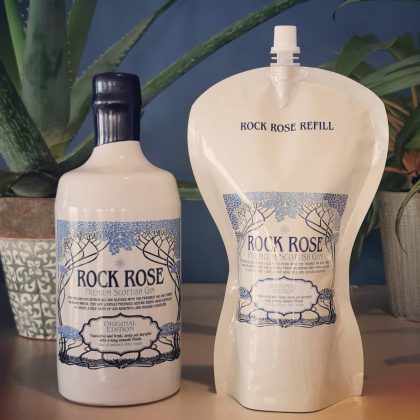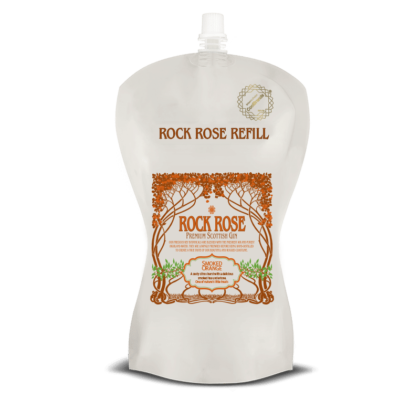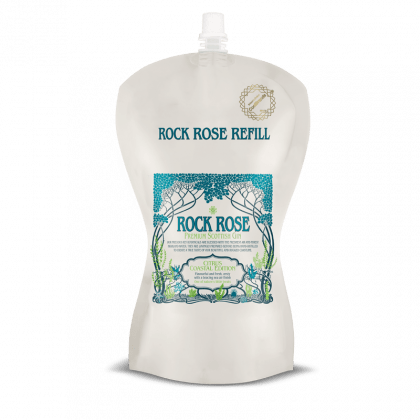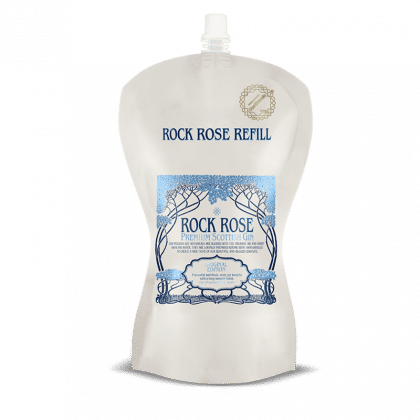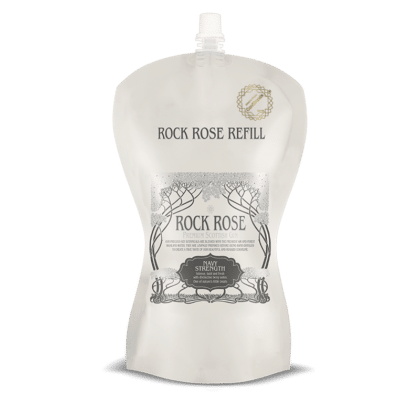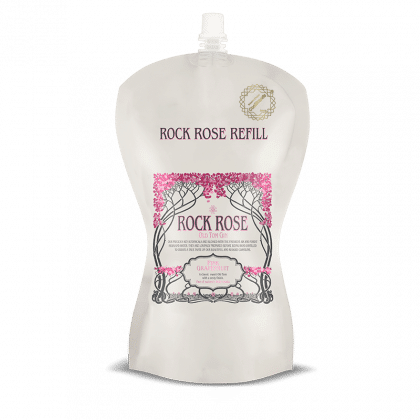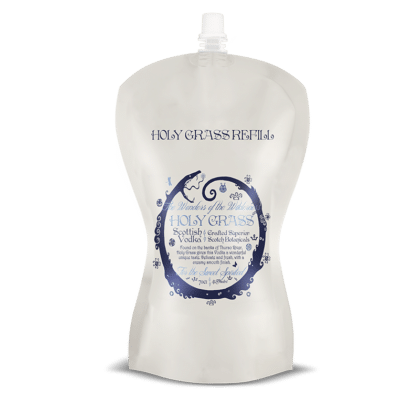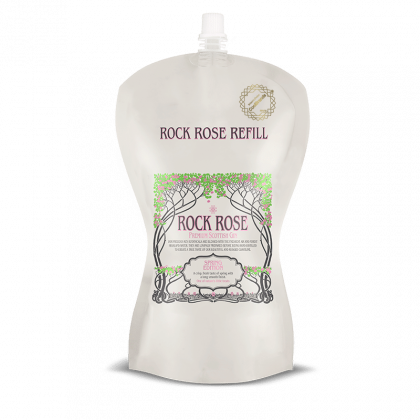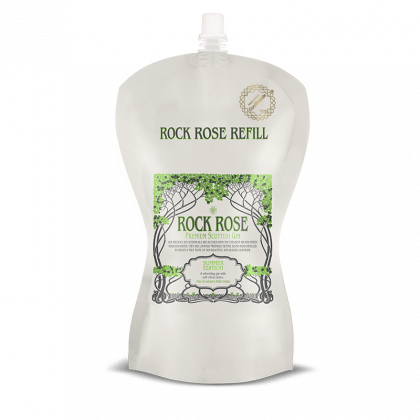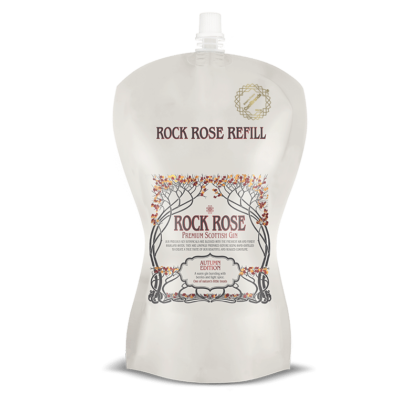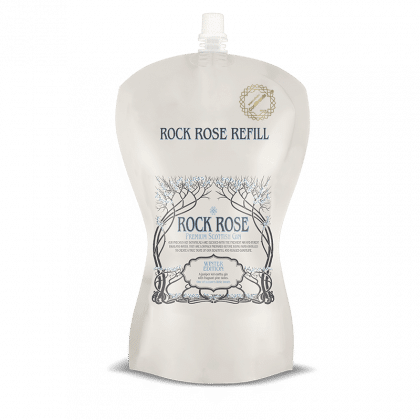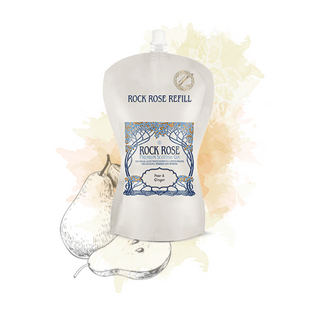We get a lot of interest in our refill pouches and so we thought we would give you a run down on our world of pouches. What they are all about and why we use them!
Bottles are heavy!
The energy used to make them and move them around is much larger than for a pouch. Our pouches weight just 17g and a bottle with its cork on weighs around 760g. All this extra weight means more fuel and therefore carbon emissions during transportation. So we try to encourage our customers to see our bottles as a bottle-for-life and to reuse them again and again in conjunction with our pouches.

Plastic can be fantastic!
It is a struggle to write this statement because whilst plastic is a material that has revolutionised materials science, it has 2 issues to consider – what it is made from and how it’s disposed of. However, when we look at plastics in a life cycle analysis its impact on carbon emissions and therefore its contribution to climate change can’t be ignored when compared to a bottle. The carbon footprint of a 500ml spouted pouch is 75.28 gCO2e vs a glass bottle that also holds 500ml coming in at 526.43gCO2e. So you could use 7 pouches before you reach the same amount of carbon emitted.
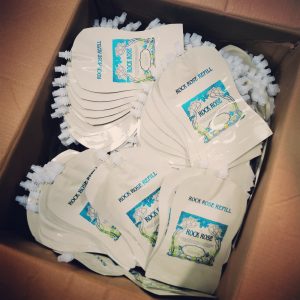
There is also a hidden plastic that the consumer never sees in the form of plastic protection during distribution. Our bottles arrive with 2.3kg of plastic packaging to protect it on its journey, including outer pallet wrap, inner foam protection and in some cases individual plastic bags. No one wants a pallet worth of bottles being wasted before they have even reached the distillery so it is necessary but this plastic still needs consideration. Pouches arrive in a cardboard box because they don’t need more protection than that, they are designed to be leak and puncture proof.
25,000-30,000 pouches can be delivered on one pallet compared to 980 bottle on one pallet, so even at the lower amount, that’s the equivalent of 26 pallets of bottles and 59.8kg of protective plastic. So although when buying a bottle we think it has no plastic, plastic has certainly been part of its journey.
At the moment spouted pouches suitable for alcohol are made from virgin materials which is definitely not ideal. When we launched our pouches there certainly wasn’t as much demand for them as there is now and we hoped that as demand increased so too would the demand for food grade recycled plastic that could then be used to make spouted pouches. This isn’t yet the case. Progress has been made with the material constituents of the pouch though and we were really pleased to find out that our pouches can now be made of one material rather than four! This will make them easier to recycle, not just through our return scheme but also at supermarkets and in some places even at the kerbside!
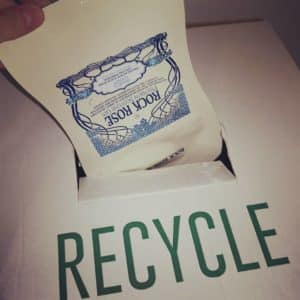
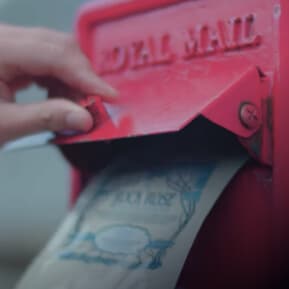
We take responsibility for the waste and make it as easy as possible for our customers to return the pouches to us. Our goal when creating the pouches was to reduce any barriers to their recycling and so Martin worked with Royal Mail to allow them to be simply popped back in to the postbox using a FREEPOST address!
No stamp or envelope is required and then when they arrive back with us we store them until we have a full box to send to TerraCycle where they are turned into items such as watering cans and benches.
In fact we do more than encourage people to use our refill pouches: we incentivise them. Our hugely popular Refill Rewards Scheme benefits consumers who use our pouches by giving them not only the pouch at a cheaper price than the ceramic bottle but including a box of treats to make their cocktails really special – and often we are promoting other Scottish businesses at the same time by including their mixers and snacks.
Fancy joining our wee club – find more details our Refill Rewards Club.
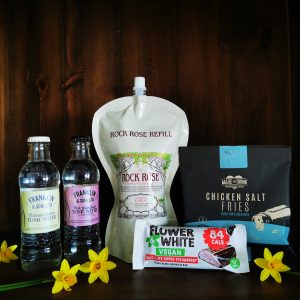
What’s next?
We are looking at reusing the pouches. We have tests to run on cleaning them and if successful this could be a great way to prolong their useable life. We also hope that in time there will be other options available such as home compostable spouted pouches.
We are also looking at other options for refill containers such as aluminium bottles but as with any solution there are always compromises.


